Weekly Tech Recap - № 171 - MS-GitHub, Drupalgeddon, Jetson Xavier, Linux on Chromebook Plus, etc.
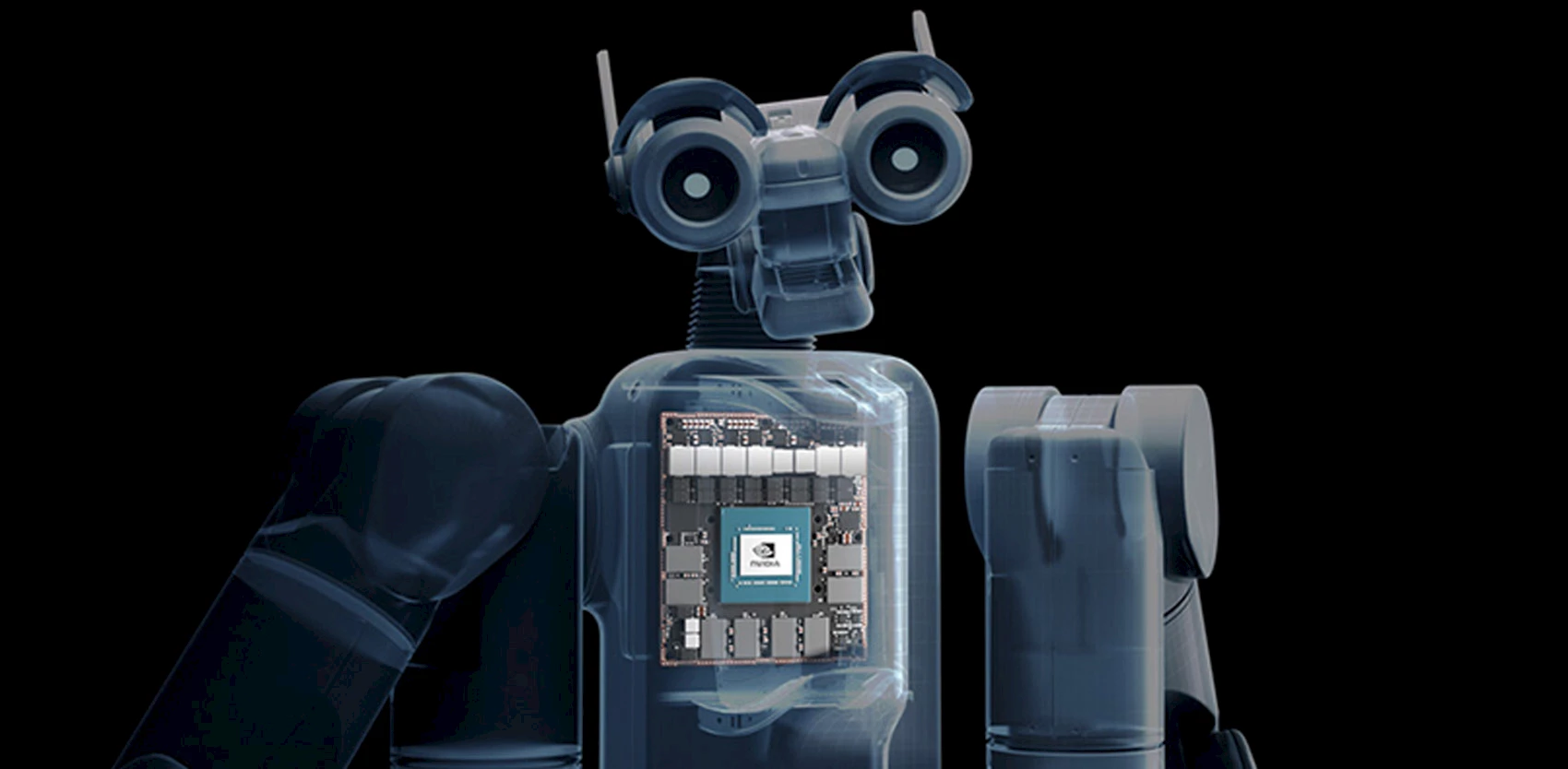
Microsoft snaps up GitHub
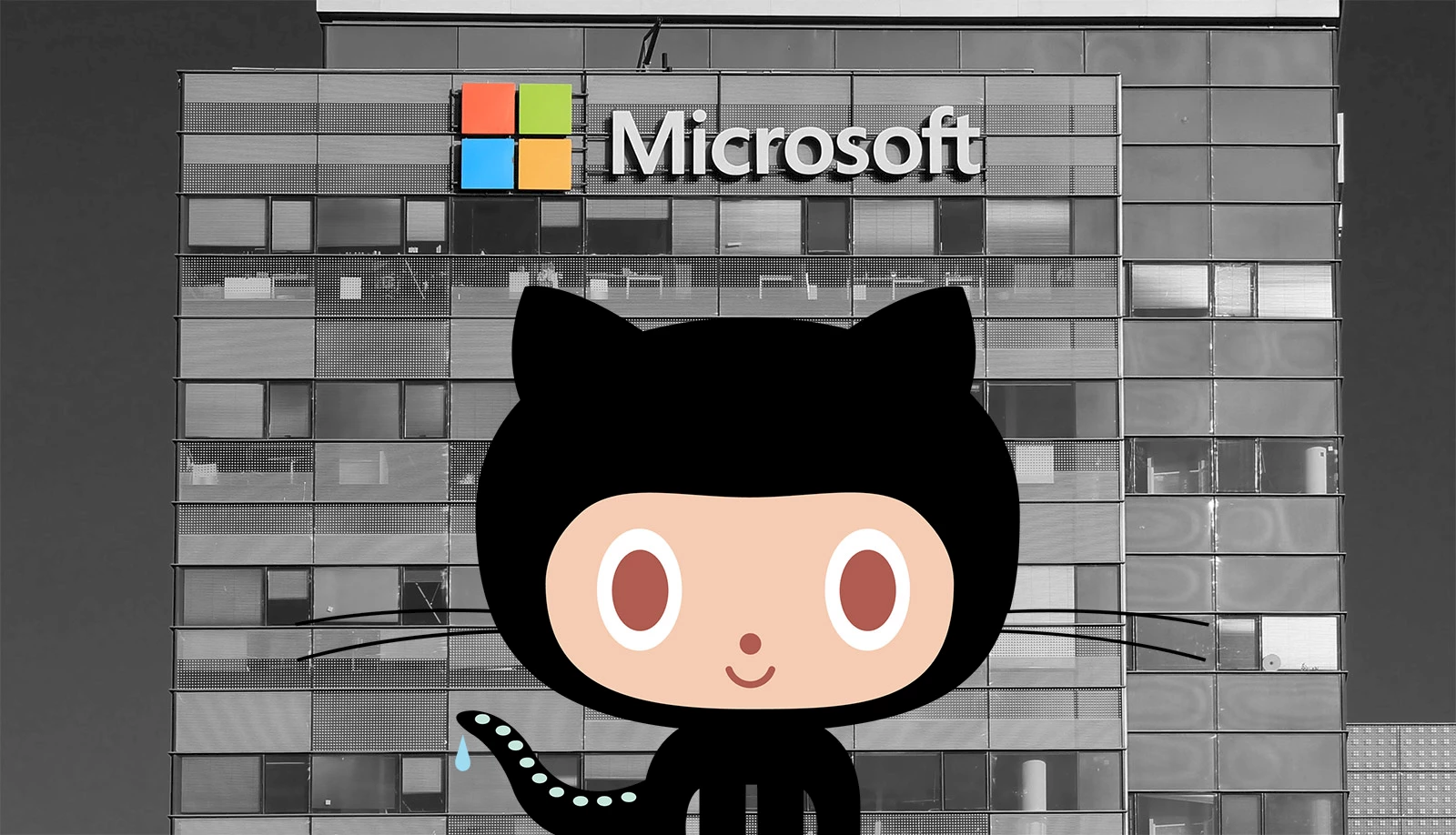
© iStock, GitHub.
Microsoft has reached an agreement worth 7.5 billion dollars with GitHub, the source code repository and collaborative software development platform. The all-stock deal should close by the end of the year, subject to regulatory approval in the US and the EU. Since its inception in 2008, GitHub has become an open source place, with countless software projects using GitHub repositories as a place to publish their code, including Microsoft projects like the editor Visual Studio Code and the .NET runtime. In total, 28 million developers use GitHub, depositing in 85 million sets of code. Microsoft says it will retain GitHub’s status as an open platform for all open source projects, keeping it agnostic toward programming languages and development tools. The announcement, while generally favorably received, did leave some developers skeptical, raising suspicion about Microsoft and its motives. Indeed, some open-source developers worry about the future of the platform, recalling Steve Ballmer’s comparison of Linux to cancer. Some of them still believe Microsoft to be the Devil itself, even though the company has changed considerably since Satya Nadella’s takeover in 2014.
⇨ Ars Technica, “Microsoft snaps up GitHub for $7.5 billion.”
Drupalgeddon

© iStock, Drupal, Spiria.
Security researcher Troy Mursch has found that over 115,000 Drupal Web sites — including those of large universities, government organisations and media companies — are wide open to hacker takeovers because they haven’t installed critical security patches released 10 weeks ago. Another researcher, Jerôme Segura, indicated that many of these sites are already compromised and being used to surreptitiously mine cryptocurrencies or spread malware to unsuspecting visitors. Drupal is one of the most popular content management systems around, along with WordPress and Joomla. At the end of March 2018, Drupal was affected by a vulnerability allowing hackers to remotely execute their own code (CVE-2018-7600), which was followed by yet another vulnerability just a month later (CVE-2018-7602). The vulnerabilities, due to their severity and the ease in exploiting them, were quickly nicknamed Drupalgeddon 2 and 3, after a similar Drupal vulnerability in 2014. Regardless of the CMS used (since no system is perfectly secure), it is crucial to install security patches as soon as they come out, especially since the window between the announcement of a vulnerability and its exploitation by hackers can be extremely short. If you are not able to monitor announcements and install patches in a reasonable timeframe, you may want to delegate this task to a professional external service.
⇨ Malwarebytes Labs, “A look into Drupalgeddon’s client-side attacks.”
⇨ Ars Technica, “Three months later, a mass exploit of powerful Web servers continues.”
Vegan-compatible salad at Google
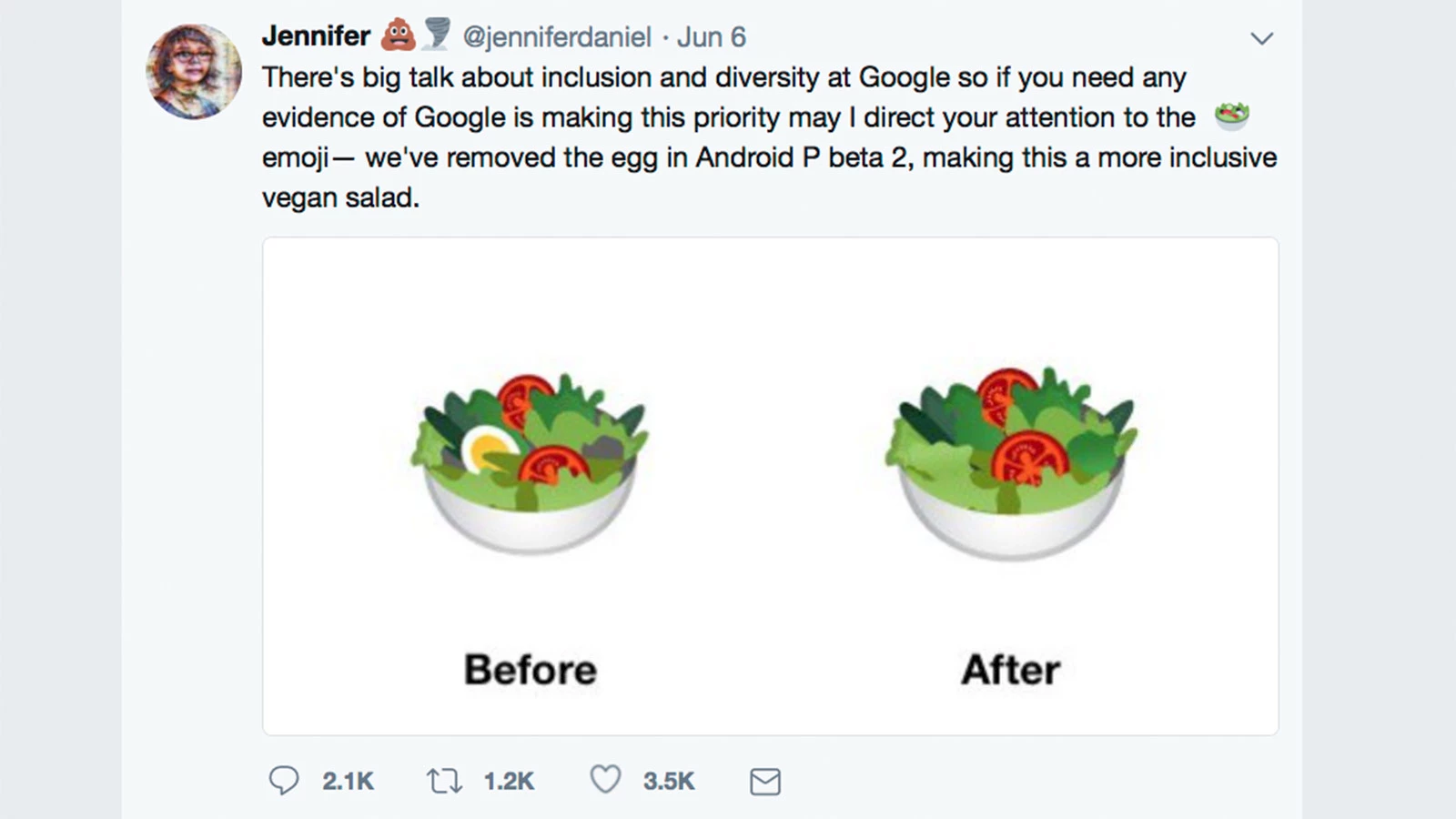
© Twitter.
Google announced a new beta version of Android P which includes updates of existing emojis as well as 157 new emojis, like a skateboard and a lobster. Observant observers observed that the green salad emoji no longer includes a slice of hard-boiled egg; designer Jennifer Daniel, who works on user interfaces at Google, explained on Twitter: “There’s big talk about inclusion and diversity at Google so if you need any evidence of Google is making this priority may I direct your attention to the salad emoji — we’ve removed the egg in Android P beta 2, making this a more inclusive vegan salad.” In fact, there is now a greater diversity of salads on all the different platforms: Apple chose a cucumber, tomato and Spanish onion combo, Facebook went for the Mediterranean diet with black olives and Feta cheese, while Samsung settled for a few slices of peppers. But the real question is, if Google goes further down the vegan-compatible path, does this mean no more pepperoni on the pizza emoji? Or shrimp and mussels on the paella? What about the hard-boiled egg in the bento box? And isn’t the bacon slices emoji offensive to the vegan community as a whole? But there’s no need to worry: while many took Jennifer Daniel’s tweet literally, it was probably meant to be humorous, and should not be taken too seriously.
⇨ Mashable, “Google changes salad emoji to make it inclusive for vegans, the internet reacts.”
⇨ The Verge, “Android P Beta 2 includes 157 new emoji and has gender-neutral options.”
Nvidia launches an AI computer for autonomous robots
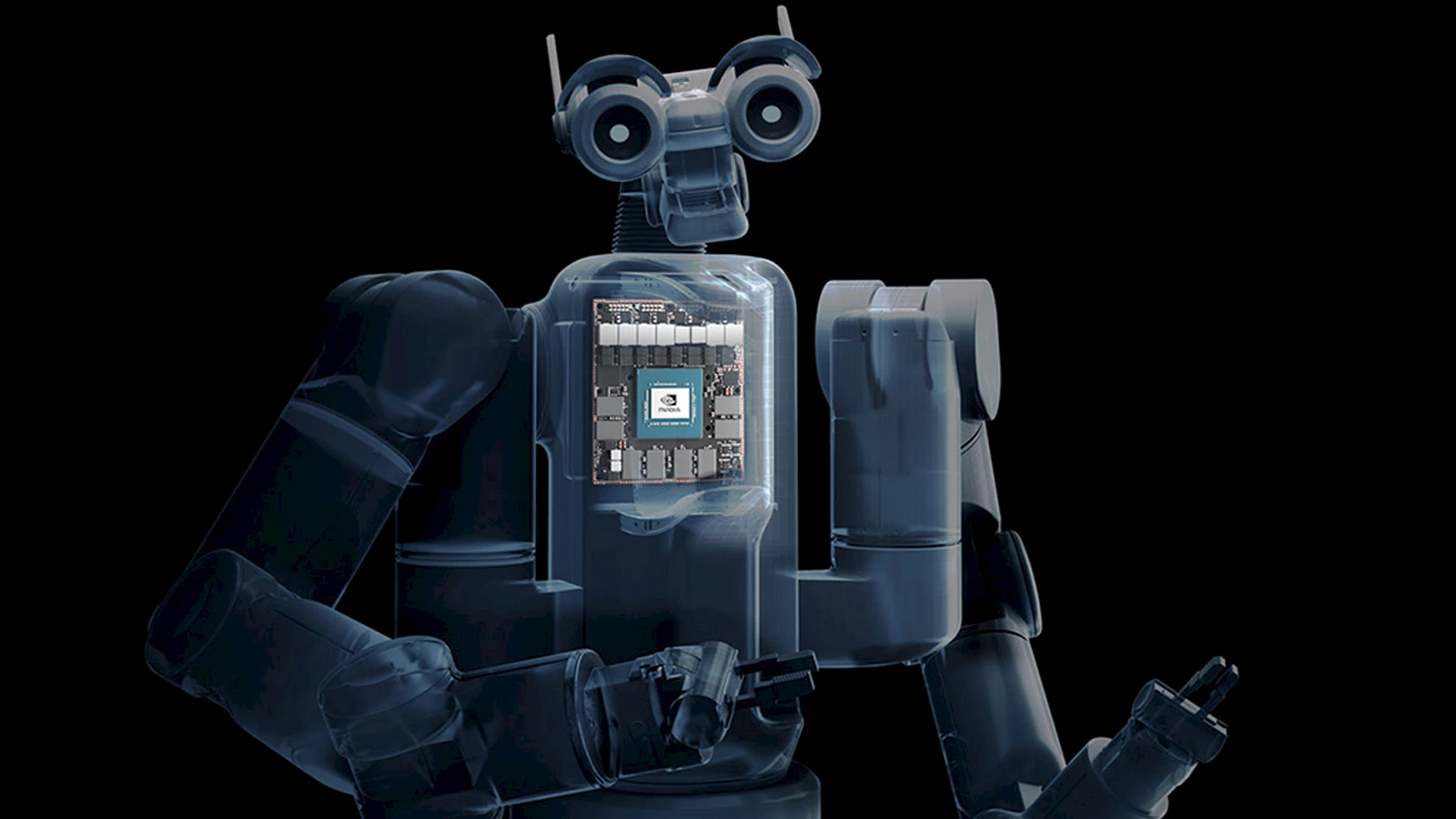
© Nvidia.
At Computex 2018, Nvidia unveiled two new products: Nvidia Isaac, a new development platform, and the Jetson Xavier, an artificial intelligence computer, both designed to power autonomous robots that navigate the real world. The Isaac platform is a suite of software tools to develop and train robots. It includes a collection of APIs to connect to cameras, as well as sensors and a new simulation environment, Isaac Sim. The Jetson Xavier computer is incredibly compact for the power it packs (over 30 TOPS, or trillion operations per second). It comes with a Volta Tensor Core graphics processor, an octocore ARM64 processor, two NVDLA deep learning accelerators and processors for static images and video. And it only needs 30 watts of power, which is particularly nice in terms of autonomy. The cost of a Jetson Xavier (including access to the Isaac platform) is US$1,299.
⇨ Circuit Breaker, “Nvidia launches AI computer to give autonomous robots better brains.”
Linux containers on Chromebook Plus
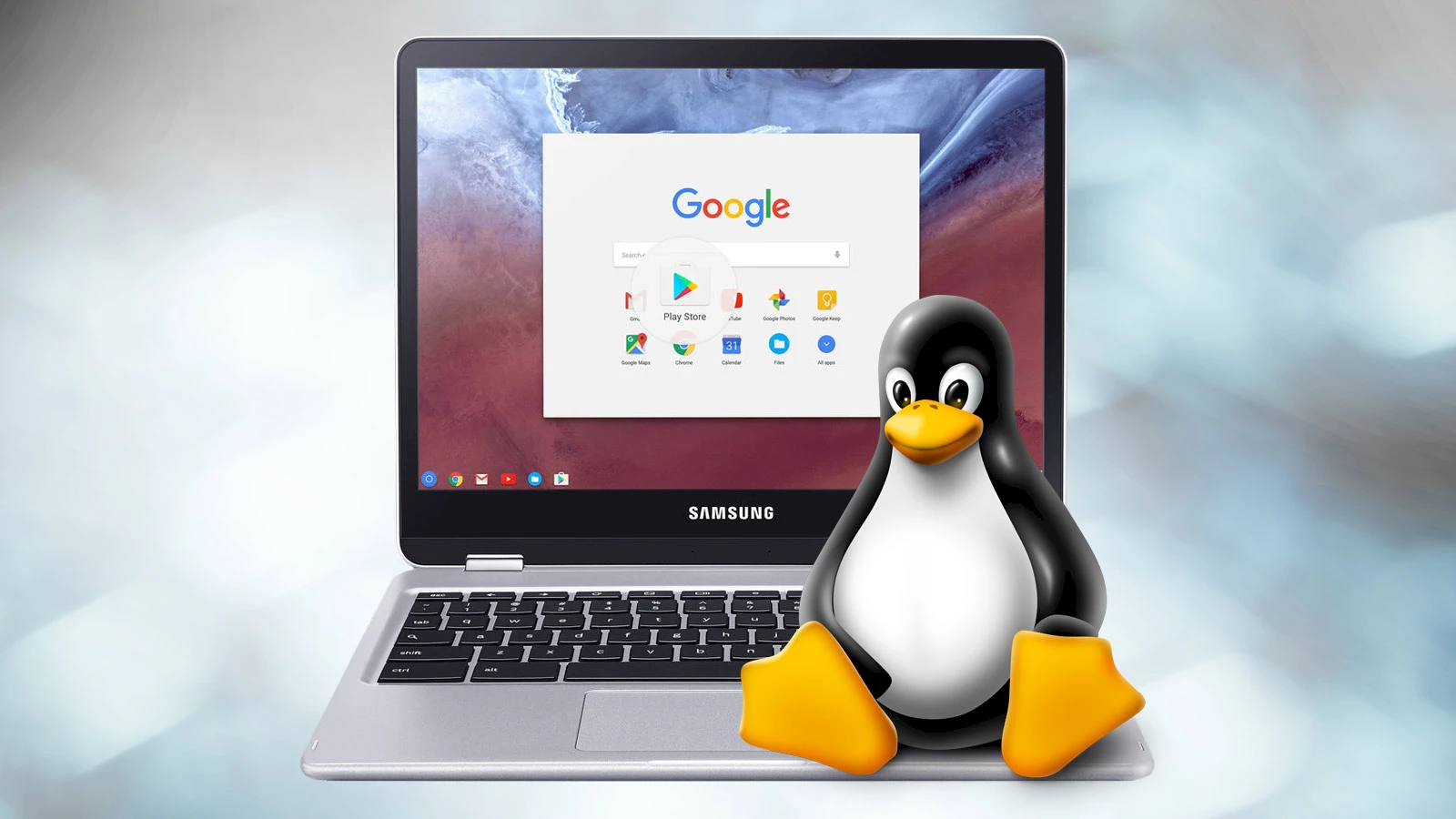
© Spiria.
Good news: Linux app support is now available for Samsung’s Chromebook Plus. Mind you, it’s still not standard, nor will most Chromebook users want it. To obtain it, you’ll have to specify you want the developer version of Chrome OS, enable beta and experimental things, and use the Terminal to install Linux apps. Even so, the addition of Linux apps could enhance the power and flexibility of Chrome OS, and turn Chromebooks into viable devices for a lot of things. Minecraft can also be a motivation to activate this experimental function. (Since the Chromebook Plus has an ARM-based processor, Linux software that is only compiled for x86 platforms evidently won’t work.)
⇨ Circuit Breaker, “Samsung’s Chromebook Plus now supports Linux apps.”
⇨ Reddit/r/Crostini, “Chromebook Plus - Linux (beta) - Quick How To.”
